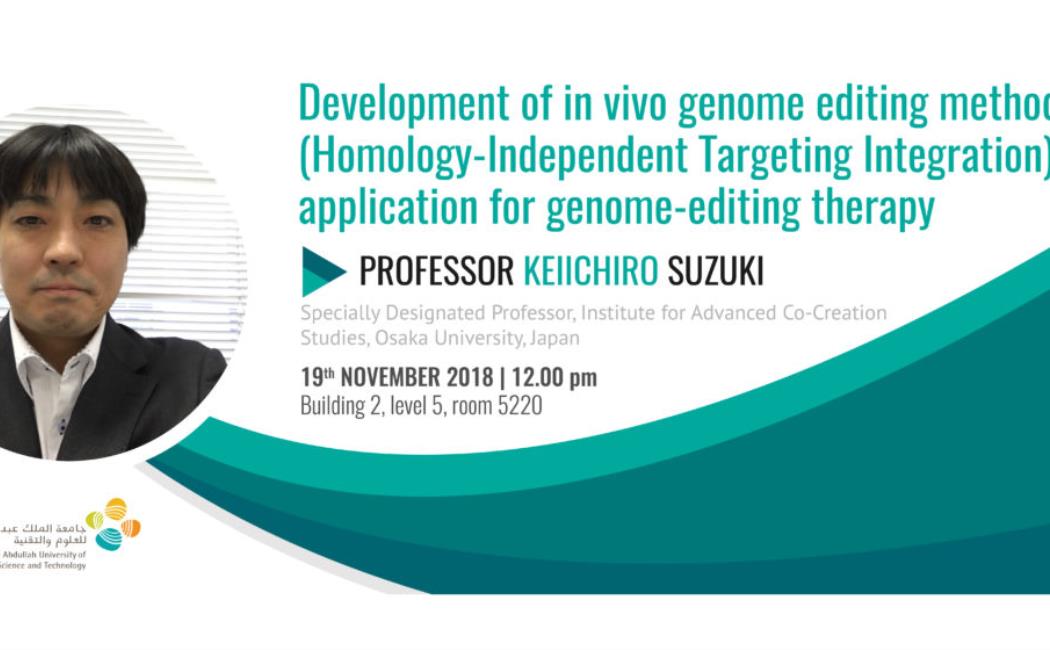
KEEP – External Invited Speaker Prof. Keiichiro Suzuki
Targeted genome editing via engineered nucleases is revolutionizing biomedical research and holds tremendous potential for clinical applications. Despite rapid advances in the field, in vivo targeted transgene integration is still infeasible because current tools are inefficient, especially for non-dividing cells, which compose most adult tissues. This poses a tremendous barrier for uncovering fundamental biological principles and developing treatments for a broad range of devastating genetic disorders. Based on CRISPR-Cas9, we have devised a homology-independent targeted integration (HITI) strategy, which allows for robust DNA knock-in in non-dividing cells in vitro and, more importantly, in vivo (e.g., neurons and skeletal muscles of postnatal mammals). As a proof of concept of its therapeutic potential, we demonstrated the efficacy of HITI in improving visual responses using a rat model of blindness, retinitis pigmentosa. In this seminar, I will talk about the application of HITI method for basic research and genome-editing therapies.
Bio:
Professor Suzuki began to study DNA double strand repair and genome-editing machineries in filamentous fungi when he was an undergraduate and a graduate student at Saitama University in Japan. He was a research associate in Juan Carlos Izpisua Belmonte’s lab at the Salk Institute for Biological Studies from 2010 to 2017. He is a Professor of Institute for Advanced Co-Creation Studies at Osaka University in Japan from 2017. He had been developed highly efficient genome-editing methods for in vitro human stem cells as well as in vivo body, which is useful for gene correction of patient-derived human stem cells for disease modeling. His current interest is to develop novel genome editing technologies for basic biology as well as genome-editing therapy.